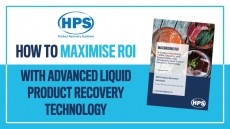Dispelling the myths of Industry 4.0; Tetra Pak webinar to address the challenges

Manufacturers and suppliers want to know is the fourth industrial revolution (4.0) only for large original equipment manufacturers (OEMs), or can small or medium-sized enterprises (SMEs) benefit and how will this affect the skills gap?
Industry 4.0 (Smart Factories)is a name for the current trend of automation and data exchange in manufacturing technologies. It includes cyber-physical systems, the Internet of Things (IoT), cloud computing and cognitive computing.
There are 4 design principles in Industry 4.0; Interoperability: (the ability of machines, devices, sensors, and people to communicate with each other); Information transparency: (enriching digital plant models with sensor data); Technical assistance (systems which can make decisions and solve problems on short notice); Decentralized decisions (cyber physical systems make decisions on their own and perform tasks autonomously).
‘Let’s talk about Industry 4.0’
Tetra Pak has come to the fore to address these concerns and will host its first webinar on FoodNavigator on April 17, entitled: ‘Industry 4.0: Impact on food and beverage manufacturers’.
“Looking at it from an industry perspective, we need to create a dialogue among food manufacturers and suppliers to say: ‘Let’s talk about Industry 4.0’, said Ilkka Dunder, digitalization director, Tetra Pak.
“It’s such a big topic which affects all manufacturers directly or indirectly. When else do you get an opportunity to talk about this, and how it affects us? Not just the challenges but the opportunities.
“This (webinar) is just the beginning of the discussion. It’s such a big topic, and everyone is in the same situation of trying to make sense of it and to navigate it. Instead of working in isolation we should work together to collaborate in creating discussion as an industry.”
Dunder added that compared to the mining or automotive industry the food industry has not advanced at the same pace and there has been immense development and progress within these sectors.
“There are some things we can learn from the mining and automotive industry because they are far ahead of us (food & beverage industry),” he added.
Tetra Pak has identified three drivers to the challenges that face manufacturers i.e pressure from retailers and consumers, pressure from regulators, to the quality of food that’s produced and pressure from brand or business owners that want to make more superior products as well as remaining profitable and increasing efficiency.
The future can look baffling. But the opportunities far outweigh the challenges. Industry 4.0 allows a food and beverage business to take a fresh and more sophisticated approach to the way it runs its operations.
Industry 1.0 1760-1840, represents the transition from skilled artisans making goods by hand to unskilled workers using machines powered by a water wheel or steam engine.
Industry 2.0 1870-1914, improved existing technologies & the synergies between them. The 2nd industrial revolution marked the beginning of the assembly line, interchangeable parts & mass production.
Industry 3.0 from 1960 to today, the introduction of disruptive technologies such as automation and the computer. The introduction of the first industrial robot and first commercial CNCs (Computer Numerical Controls).
'Efficiency is key to stay in business'
“It’s not a one-size approach for all. There is space for everyone in the discussion. The important thing is for manufacturers to start somewhere and look at opportunities that can increase productivity and allow businesses to produce more,” said Dunder.
“Efficiency is key in this area to stay in business, identifying areas to reduce cost but deliver good quality products, making production levels even better without increasing cost, looking at it from a value chain perspective to make more efficient logistics, and how you work with your stakeholders.
“It’s such a big topic. Industry 4.0 is not a product you can buy or a machine that you can install. It is many things. It’s a case of telling manufacturers where they can start, there is a perception it is for global leading brands and not small companies but this is not the case and they can sometimes feel left out of the discussions.”
As an example, Dunder highlighted a small dairy in a developing country can benefit from Industry 4.0 in terms of assessing its infrastructure and investment.
“We want to target all food manufacturers regardless of which country you operate in and the size of your business because we all have different needs. Industry 4.0 is not exclusive,” she added.
Tetra Pak has two broadcasts on April 17 - one in the morning and one in the afternoon to allow for its APAC+EMEA audience.
There are two registration pages: one for each broadcast. Click here to register for the early broadcast. Click here to register for the afternoon broadcast. There will be a Q&A session after each broadcast.
















